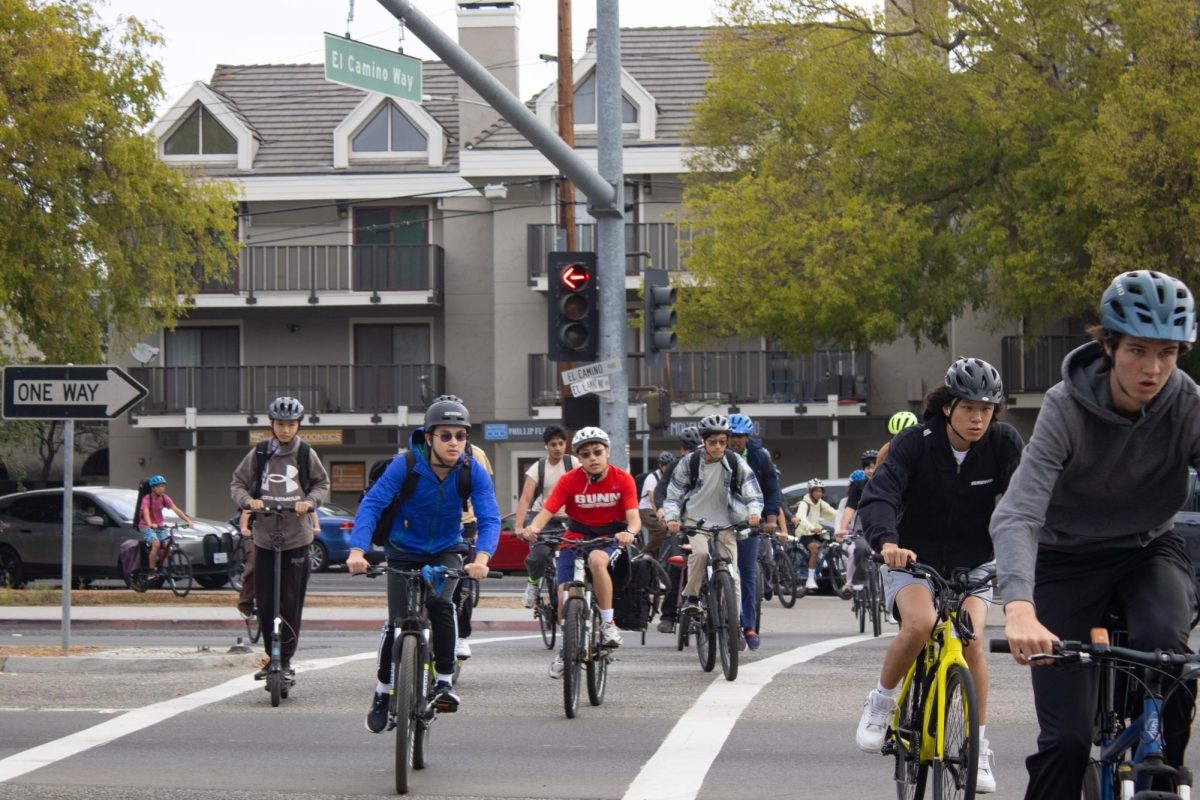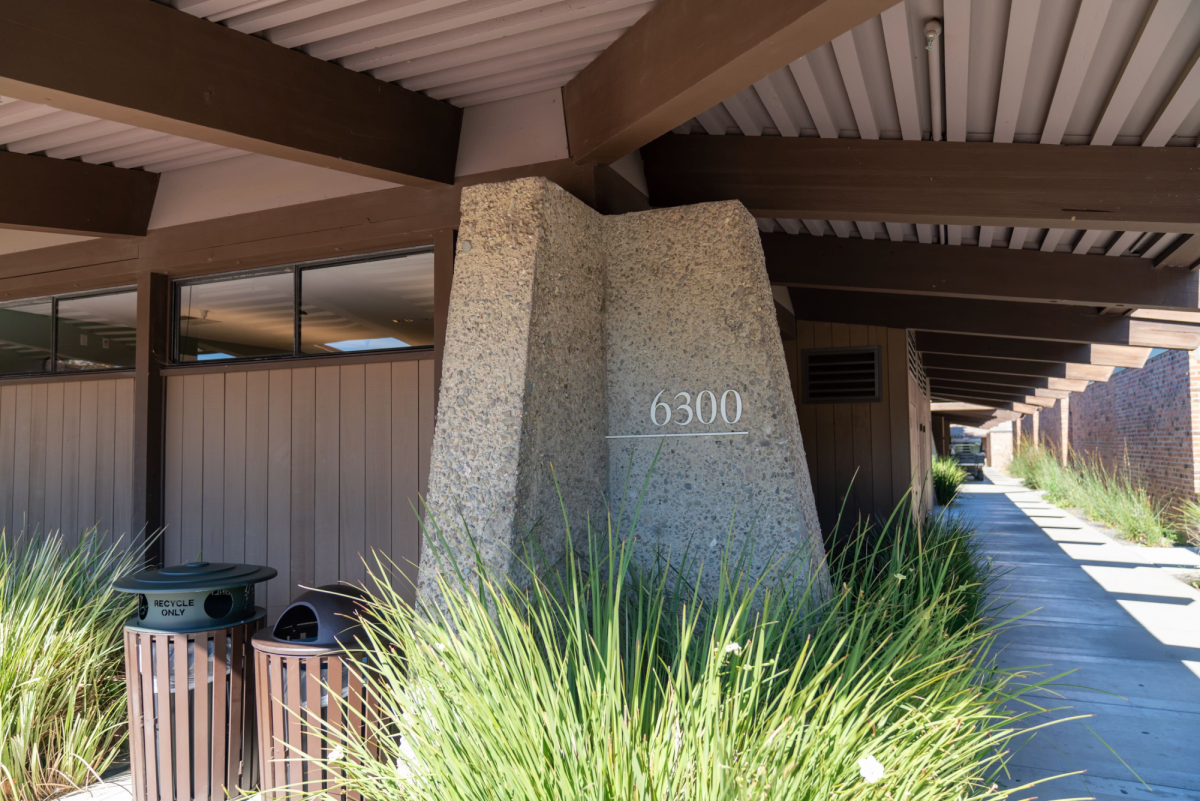Written by Amanda Lee and Megan Li
After the San Francisco Chronicle reported on Jan. 16, 2018 that “U.S. immigration officials have begun preparing for a major sweep in San Francisco and other Northern California cities, in which federal officers would [be looking] to arrest more than 1,500 undocumented people,” Palo Alto Unified School District (PAUSD) and Gunn officials made it clear that they aim to protect any undocumented students in PAUSD schools. In a letter published on the district’s website on Jan. 18, Interim Superintendent Karen Hendricks shared a school board resolution to designate PAUSD schools as sanctuary schools. “As educators, we know that students cannot learn when they do not feel welcomed and safe at school…All PAUSD students, regardless of national origin and immigration status, as children who live in the United States of America, have a right to a high quality public education,” she wrote in the letter.
The resolution was drafted out of concern for student safety with the current threats of nationwide Immigration and Customs Enforcement (ICE) raids, where undocumented immigrants are being arrested and detained by federal officers for deportation. Under the resolution, which is the district’s official policy, PAUSD “will not cooperate with immigration enforcement actions except as required by law,” and all requests for student information will be referred to the superintendent unless “there is an immediate threat to public safety.”
Board President Ken Dauber said the resolution was passed to inform staff on how to handle queries made by immigration officials. “I think it will help to ensure that students don’t face deportation without the district being fully informed about the enforcement action,” he said. “Of course, the district has to comply with the law, but it’s really up to the superintendent and the district office to determine what that means in particular cases and we don’t want individual staff members to try to do that and to make a mistake that disadvantages students…We already have board policy that regulates, to the extent that we can, law enforcement activity on campus, and for immigration, we’re taking this extra step.”
School board member Jennifer DiBrienza stressed the district’s pledge to uphold the Family Educational Rights and Privacy Act (FERPA) in order to protect student information. “The only way that we would have to tell, would be if there was an explicit judicial order or subpoena saying that we have to provide that information,” she said.
The district’s efforts would be reinforced by a proposed California bill to require federal immigration agents to obtain a warrant before arresting or questioning people. The bill passed the state senate on Jan. 29, but still needs to pass the state assembly.
Immigration attorney and PAUSD parent Marcia Perez says that while the resolution is a strong act of solidarity, there is not much the district can do to prevent ICE agents. “It is important to send a message of unity and that we stand with immigrant families, but it may be more symbolic than substantive,” Perez wrote in an email. “Yes, it is important for students to see that their district stands with them and protects them but ICE rarely, unless looking for a specific person with a warrant, conducts raids at schools or requests info from districts.”
Assistant Principal Pier Angeli La Place notes that the number of undocumented families and students in the district is unclear since the district does not collect information about immigration status. “It would be difficult to estimate because the nature of undocumented status is not too evident,” she said. “If I had to estimate, I would say that the number of undocumented students is on the smaller end of our community.”
In the event that ICE agents were to come onto campus, the tentative first course of action would be to withhold student information; without the school’s cooperation, ICE would have difficulty finding and arresting undocumented students. According to La Place, the school would not identify students or provide student schedules or locations unless the agents had a federal warrant.
Similar to churches, schools are generally seen as sensitive locations where ICE raids are an uncommon occurrence. However, Perez warns that agents may come looking for a specific person with a warrant, and that off-campus locations can be dangerous for undocumented individuals. “It should be noted there is nothing stopping ICE from taking students and/or parents into custody once they step off school grounds onto public property,” she wrote.
The administrators emphasized that student safety is their priority and brought up the legal concept of in loco parentis, where a school acts as a guardian on behalf of the students’ parents. “My hope is [the arrests] never [happen],” Principal Kathleen Laurence said. “But I do want students who may be undocumented to know that we will do every- thing in our power to protect them, because the reality is,
when kids are at school, we’re in loco parentis… So if they’re my kids, they’re my kids and they’re not going anywhere.”
“I think it’s incumbent upon the rest of us as a community to do that and advocate for them.”
—School board member Jennifer DiBrienza
World Languages Instructional Supervisor Liz Matchett urges students to make their own informed opinions about the undocumented immigrant arrests. “At this point in your lives, you’re starting to be young adults and so it’s worth it to not just accept what adults tell you, whoever those adults are, [but] to look for yourself, to read the information and find out for yourself,” she said. “Maybe you believe that we should get rid of everyone who’s here in an undocumented fashion, but I encourage people to look into that and find out what that would really mean, what would happen to our country if we didn’t have people here.”
DiBrienza believes the community has the ability to support any undocumented families. As these families are unlikely to raise their voices to protect themselves for fear of endangering themselves, she sees it as the community’s responsibility to do so on their behalf. “We can also continue to speak out, and to march, and to rally, and to contact our congressperson to let them know that we expect our representatives to stand up for our immigrant families,” she said. “I think it’s incumbent upon the rest of us as a community to do that and advocate for them.”
Dauber encourages the community to help undocumented families. “I think that offering friendship and moral support, offering to help fund legal services for immigrant families, housing—these families really are disadvantaged by federally mandated discrimination and the right response, I think, is to offer help wherever we can,” he said.










